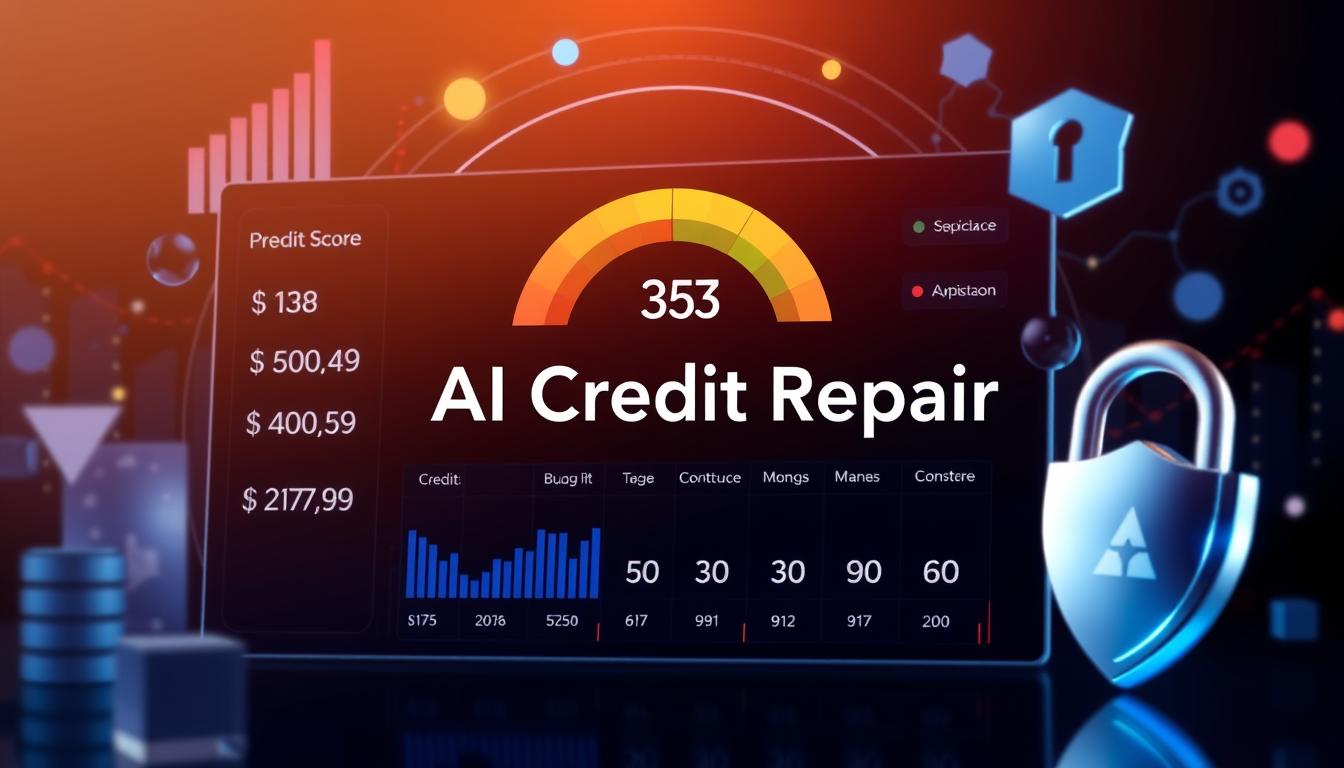Here’s the rewritten content for the paragraph enclosed in p tags:
Understanding your credit score is vital for managing personal finances. TransUnion, a major credit bureau, plays a key role in determining creditworthiness. Many consumers are surprised to learn that TransUnion charges for credit score access.
Why does TransUnion charge for this service? Let’s explore the reasons behind their pricing model. We’ll examine the factors that contribute to the cost of accessing this crucial financial information.
Understanding Credit Bureaus and Credit Scores
Credit bureaus like TransUnion, Experian, and Equifax are vital in personal finance. They collect and maintain data about people’s credit histories. This includes payment records, credit use, and other financial actions.
The Role of Credit Bureaus
Credit bureaus are the guardians of credit information. They gather data from many sources to create detailed credit reports. Lenders, landlords, and employers use these reports to judge creditworthiness.
These reports help them decide about lending, renting, or hiring. They provide a clear picture of a person’s financial behavior.
The Importance of Credit Scores
Credit scores come from the data in credit reports. They show how likely a person is to repay debts. Lenders and others rely on these scores to assess risk.
A higher score usually means lower risk. This makes it easier to get good loan terms or rent approval. It can even help in job searches.
Knowing about credit bureaus and scores is key for good finances. It helps people access the credit and chances they need.
| Credit Bureau | Responsibilities |
|---|---|
| TransUnion | Collects and compiles credit information, calculates credit scores, and provides credit reports to lenders and consumers. |
| Experian | Gathers credit data from various sources, generates credit scores, and offers credit monitoring services. |
| Equifax | Collects and maintains consumer credit data, develops credit scoring models, and provides credit reports and related services. |
“Credit scores are the cornerstone of a consumer’s financial life, impacting everything from getting a loan to renting an apartment.”
TransUnion: One of the Major Credit Bureaus
TransUnion is a key credit bureau in the United States. It gathers and manages consumer credit information for lenders and other organizations. This data helps in making decisions about credit applications and financial transactions.
Founded in 1968, TransUnion has become a leading credit reporting service provider. It operates in over 30 countries, offering various products to consumers and businesses.
TransUnion creates detailed credit reports on millions of consumers. These reports include information about a person’s credit history. They cover credit cards, loans, bankruptcies, and credit inquiries.
- Credit card accounts and payment history
- Loans and mortgages
- Bankruptcies, foreclosures, and other public records
- Credit inquiries and application activity
Lenders use TransUnion’s credit information to evaluate applicants’ creditworthiness. This helps them decide on credit approvals, interest rates, and credit limits.
| Key Facts about TransUnion | Value |
|---|---|
| Headquarters | Chicago, Illinois |
| Founded | 1968 |
| Number of Employees | Over 8,000 |
| Annual Revenue (2021) | $2.9 billion |
TransUnion is vital to the financial world as a major credit bureau. It provides crucial credit information for informed financial decisions. This data helps lenders, businesses, and consumers manage credit effectively.

The Cost of Accessing Your Credit Score
Getting your TransUnion credit score usually involves a subscription or one-time purchase. Knowing these costs is key for managing your finances effectively. Let’s explore your options.
Subscription-Based Services
TransUnion offers credit monitoring plans with ongoing access to your score and report. These services often include monthly or annual fees. Costs can range from a few dollars to several hundred per year.
While pricey, these plans offer valuable features. You’ll get real-time credit monitoring and alerts for report changes. Many also include identity theft protection.
One-Time Credit Report Purchases
You can also buy your credit score and report as a one-time purchase. This lets you review your credit info without recurring fees. Prices for single reports vary widely.
Expect to pay between $10 and $40, depending on the source. Some options may include extra services, affecting the final cost.
| Service Type | Typical Cost | Key Features |
|---|---|---|
| Subscription-Based | $3 to $50 per month or $30 to $600 per year |
|
| One-Time Purchase | $10 to $40 per report |
|
Choose between subscriptions and one-time purchases based on your needs. Consider your budget and how often you need credit monitoring. Weigh the extra features against the ongoing costs.

Why Does TransUnion Charge For Credit Score?
TransUnion, a major credit bureau, charges for credit scores and reports. This reflects the costs of their business model. They collect and analyze vast amounts of consumer credit data.
Credit bureaus gather data from lenders, creditors, and public records. This process requires substantial resources in technology, infrastructure, and personnel. It’s both extensive and expensive.
To cover costs, credit bureaus offer various products to consumers and businesses. These include credit reports, scores, and monitoring services. Fees for these products are their main income source.
| Cost Factor | Explanation |
|---|---|
| Data Collection | The credit bureaus invest heavily in gathering and verifying consumer credit information from a multitude of sources, a process that requires significant resources and ongoing maintenance. |
| Analytics and Scoring Models | Developing and refining the complex credit scoring models used to generate accurate and reliable credit scores is a continuous and resource-intensive effort. |
| Infrastructure and Technology | The credit bureaus must maintain robust and secure IT systems to store, process, and deliver credit data and scores to consumers and businesses. |
Credit score access fees may seem costly to some consumers. However, they’re necessary for maintaining the credit reporting system. These charges ensure the integrity and reliability of credit information.

Factors Affecting the Cost of Credit Scores
TransUnion’s credit score cost depends on several key factors. These factors offer insights into expenses linked to maintaining and improving your credit profile.
Data Collection and Maintenance
Credit bureaus invest heavily in gathering, validating, and storing consumer credit data. This process is vital for creating accurate credit reports and scores. Consumers often bear these costs when seeking their credit information.
Credit Score Models and Analytics
Developing and refining credit score models and analytics adds to the cost. Credit bureaus must constantly improve their scoring algorithms. This ongoing investment impacts the fees charged for credit score access.
“The cost of credit scores is a reflection of the complex processes and infrastructure required to maintain a comprehensive and reliable credit reporting system.”
Understanding these factors helps consumers value a healthy credit profile. It aids in making smart decisions about accessing credit information. This knowledge can improve overall financial well-being.

Alternatives to Paying for Your Credit Score
You don’t have to pay to access your credit score. Several free options are available to monitor your credit. These free credit score services help you stay informed about your financial health.
You can track your credit without a subscription. Credit score access options and credit monitoring alternatives provide valuable insights without cost.
Free Credit Score Services
Many financial institutions offer free credit score services to their customers. These services provide regular updates on your credit score. They also offer insights into factors that influence it.
Here are some popular examples:
- Credit Karma: Offers free credit scores and reports from TransUnion and Equifax, as well as credit monitoring and personalized recommendations.
- Discover Credit Scorecard: Allows Discover cardholders to access their FICO® Score for free, along with a breakdown of the factors impacting their score.
- Mint: Integrates with your financial accounts to provide a comprehensive view of your credit score, credit report, and credit monitoring.
These free credit score services keep you informed about your credit. You don’t need to pay for direct access through credit bureaus.
“Monitoring your credit score regularly is crucial for maintaining a healthy financial profile. The good news is that there are now many credit score access options and credit monitoring alternatives available at no cost.”
You can also access your credit report for free once a year. This is available from each major credit bureau through AnnualCreditReport.com.
Regularly review your credit report to spot any errors. This helps you identify suspicious activity and take steps to address it.
The Importance of Monitoring Your Credit Score
Keeping tabs on your credit score and credit report is vital for good financial health. It helps you spot errors and take steps to boost your creditworthiness. This can lead to better loan terms and prevent issues from inaccurate data.
Regular checks allow you to catch and fix errors in your credit report. These mistakes can hurt your credit score and make it harder to get financing. By reviewing often, you can dispute wrong info and ensure accuracy.
Credit score monitoring helps spot signs of identity theft or fraud. Quick detection allows for immediate action to protect your finances. This proactive approach minimizes the impact of theft on your credit health.
Understanding what affects your credit health is crucial. Identifying areas to improve helps you take steps to boost your credit score. This may include timely bill payments, debt reduction, and maintaining a good credit mix.
Regular credit score and credit report checks are key to financial well-being. Staying informed helps you address issues and protect against identity theft. It can lead to better financial opportunities and a more secure future.
Disputing Errors on Your Credit Report
Your credit report’s accuracy is vital for your financial health. Spot any credit report errors? Act fast to dispute them with the credit bureau. This process helps fix mistakes and ensures your credit history is correct.
Fixing errors protects your financial future. It also improves your chances of getting better credit offers.
The Dispute Process
Here’s how to dispute credit report errors:
- Identify the specific error or inaccuracy on your credit report.
- Gather any supporting documentation or evidence that can substantiate your claim.
- Contact the credit bureau responsible for the erroneous information and initiate a credit report dispute. This can be done either online, by mail, or by phone.
- Provide the credit bureau with your detailed explanation of the credit report error and the supporting evidence.
- The credit bureau is required to investigate your dispute and respond within a specified timeframe, typically 30-45 days.
- If the credit bureau verifies the error, they must correct the credit report correction and update your credit report accordingly.
Regular credit report checks are key. They help catch and fix credit report errors quickly.
Quick action keeps your credit history accurate. This ensures you get the best credit deals possible.
“Keeping a close eye on your credit report and promptly addressing any errors is crucial for maintaining a healthy credit profile.”
| Step | Description |
|---|---|
| Identify the Error | Carefully review your credit report and pinpoint the specific inaccuracy or credit report error. |
| Gather Evidence | Collect any supporting documents or information that can substantiate your claim of a credit report error. |
| Initiate the Dispute | Contact the credit bureau responsible for the erroneous information and formally initiate a credit report dispute. |
| Provide Explanation | Clearly explain the nature of the credit report error and provide the supporting evidence. |
| Wait for Investigation | The credit bureau will investigate your credit report dispute and respond within the specified timeframe. |
| Obtain Correction | If the credit report error is verified, the credit bureau must correct the information on your credit report. |
Improving Your Credit Score Over Time
A strong credit score requires diligent financial management. Smart credit building strategies can steadily improve your credit score. Here are steps to enhance your credit score improvement:
- Make Timely Payments: Consistently pay your credit cards, loans, and bills on time. Set up automatic payments or reminders to avoid late or missed payments.
- Keep Credit Utilization Low: Maintain credit card balances below 30% of your total available credit. High balances can negatively impact your financial responsibility and credit score.
- Monitor Your Credit Report: Regularly check your credit report for errors or discrepancies. Dispute any issues promptly to help improve your credit score.
- Diversify Your Credit Mix: Have different types of credit accounts. This shows your ability to manage various forms of credit building strategies.
- Increase Credit Limits: Ask credit card issuers to raise your limits. This can lower your credit utilization ratio and boost your credit score improvement.
These credit building strategies can gradually improve your credit score. A strong financial profile offers better interest rates and more opportunities.
You’ll enjoy favorable credit terms and greater financial flexibility. The benefits of a good credit score are well worth the effort.
“Building a good credit score takes time and consistency, but the rewards are worth the effort.”
Conclusion
TransUnion charges for credit score access due to data collection and maintenance costs. Alternative options exist for checking your credit. Regularly monitoring your credit report is crucial for financial health.
Your credit score is key to understanding your financial health. TransUnion, a major credit reporting agency, charges for this service. The fees reflect the complex nature of credit reporting.
The cost of accessing your credit score provides valuable insights. Regular monitoring helps maintain a healthy financial profile. This practice allows you to navigate the credit landscape confidently.
By understanding credit reporting, you can make informed financial choices. Taking proactive steps can improve your financial well-being over time. This approach helps you achieve your long-term money goals.

